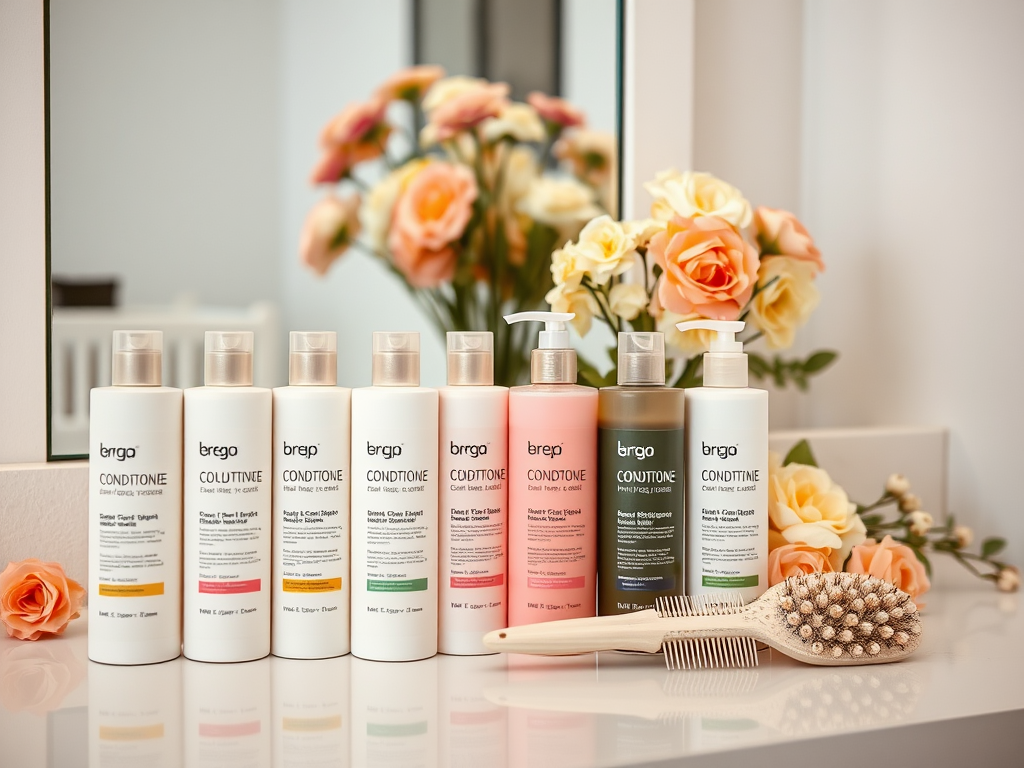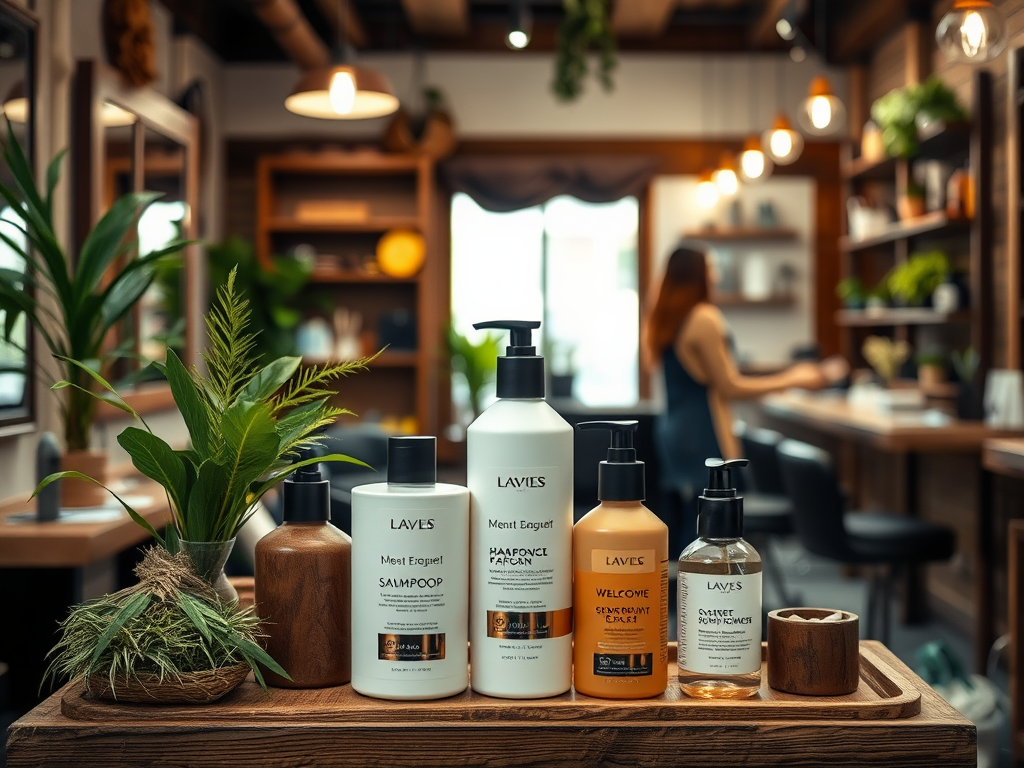Hair care is a cornerstone of personal grooming that significantly impacts one’s appearance and confidence. However, many individuals remain unsure about the importance of using conditioner after shampooing. It’s easy to overlook this crucial step, especially when time is limited or one is in pursuit of a simple routine. This article aims to unravel the necessity of conditioner in a hair care regimen while highlighting its multiple benefits and how to choose the right product for your specific hair type. From moisture retention to damage repair, conditioner plays a vital role that many may not fully appreciate. Let’s dive deeper into the world of hair care to rediscover the essential role conditioner has in achieving healthy, shiny, and manageable hair.
Understanding the Hair Structure

To comprehend the necessity of conditioner after shampoo, it is essential to grasp the structure of hair. Hair is made up of three layers: the cuticle, cortex, and medulla. The cuticle serves as the outer protective layer, ensuring that inner structures remain unharmed from external factors. On the other hand, the cortex, which lies beneath the cuticle, gives hair its strength, color, and texture. When shampoo is applied, it removes dirt and excess oils from these layers. However, this cleansing process can strip the hair of essential moisture, leaving it dry and brittle.
The relationship between shampoo and hair can be likened to a double-edged sword. While the cleansing properties of shampoo are vital for cleanliness, they can also compromise hair health if not countered by a nourishing conditioner. A better understanding of hair structure emphasizes the importance of maintaining the integrity of the cuticle and cortex through proper hair care practices. Thus, the application of conditioner serves to replenish moisture and nourishment lost during the washing process.
The cuticle can be seen as the armor of your hair. It consists of overlapping cells that function to protect the inner layers of the hair shaft. When this protective layer is intact, hair appears shiny and smooth, while damaged cuticles can lead to frizz and split ends. Key factors contributing to cuticle damage include excessive heat styling, environmental stressors, and the lack of proper nutrition. By using conditioner, you help seal and smooth the cuticle, reducing further damage and enhancing your hair’s overall health.
Benefits of Using Conditioner

The benefits of applying conditioner after shampooing extend far beyond mere aesthetics. Conditioners are formulated to address specific hair concerns, ensuring that strands are not just clean but also healthy and vibrant. Below are some significant benefits that come with consistent conditioner use:
- Moisture Retention: Conditioners seal in moisture, preventing dryness and brittleness.
- Improved Manageability: They reduce tangling and make styling easier.
- Damage Repair: Products with particular ingredients can repair damage caused by styling or environmental factors.
These benefits highlight why using conditioner is a critical component of hair care. When hair is well-moisturized and manageable, it contributes to a flawless look and feel. An effective conditioner works to enhance the texture and health of each strand, thereby improving your overall hair experience.
Conditioners not only aid in moisture retention but also boost the overall health of your hair. They typically contain emollients and humectants that attract and retain moisture. Using conditioner after shampooing allows your hair to absorb these key ingredients, ensuring it stays hydrated throughout the day. The result? Lively hair that feels soft to the touch and is less prone to breakage.
Choosing the Right Conditioner
Selecting the right conditioner for your hair type is crucial for achieving the best results. Each hair type has its own unique needs, so understanding those can greatly enhance your hair care routine. Below are categorized options to help guide you in the decision-making process:
| Hair Type | Recommended Conditioners |
|---|---|
| Dry or Curly Hair | Look for rich, moisturizing conditioners that contain oils and butters. |
| Oily Hair | Choose lightweight, clarifying conditioners that remove excess oil without stripping moisture. |
| Color-Treated Hair | Select conditioners that are sulfate-free and specifically designed for color protection. |
Investing in the right conditioner can have transformative effects on your hair health. Each unique formulation caters to the specific challenges your hair may face, ensuring a tailored approach to every wash day.
How to Properly Use Conditioner
Using conditioner the right way is essential to maximize its effectiveness. Start by applying a generous amount to the mid-lengths and ends of your hair, avoiding the scalp to prevent weighing it down. It’s important to distribute the product evenly, allowing it to coat each strand adequately for the best potential results.
Here are some practical tips to optimize your conditioning experience:
- Use a wide-tooth comb to distribute the conditioner evenly through your hair.
- Consider leaving it in for 3-5 minutes for deeper penetration.
- Rinse with cool water to help seal the cuticle and lock in moisture.
Each of these steps contributes to achieving soft, lustrous hair that shines with health.
Conclusion
In summary, using conditioner after shampooing is not merely an optional step in a hair care routine; it is essential for maintaining healthy and manageable hair. From moisture retention to damage repair, conditioner provides numerous benefits that rejuvenate and nourish your hair. Understanding your hair structure, choosing the right products, and applying them correctly can create a transformative effect on your locks.
Frequently Asked Questions
- Why should I always use conditioner after shampoo? Conditioner helps replenish moisture, reduces tangles, and adds shine, making hair more manageable.
- Can I skip conditioner if my hair is fine? While your hair may be fine, using a lightweight conditioner can prevent dryness and improve manageability.
- How often should I use conditioner? Ideally, you should condition your hair each time you wash it. Adjust based on your hair type and needs.
- Is there a difference between rinse-out and leave-in conditioners? Yes, rinse-out conditioners are designed to be washed out after a few minutes, while leave-in conditioners provide extended moisture and protection throughout the day.
- What should I do if my conditioner weighs my hair down? Look for lighter formulations or consider using less product and applying only to the ends of your hair.
